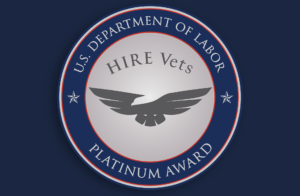Simple tips to make the most of your year
8. Hitch ERM to your executive’s top metrics
What are the executives really focused on? Identify those metrics and then tie Records Management initiatives to them.
Is your organization looking to reduce cyber risk? Great, that’s worth doing. What if the primary goal is growth? Digital modernization? Improving workplace efficiency? Managing costs? With thought, it’s clear that Records Management and Information Governance matters to all these big initiatives. Find out what matters to the executives most, and then let them know that what you do matters to that goal.
7. Build on IT relationships
CIOs don’t always appreciate how essential Records Management is to the overall IT and Data strategy of an organization.
Remind them that the archives you build and maintain are the largest long-term knowledge and information stores in the organization. That gives the archive real value as a data source for analytics and knowledge management, and high risk as a target of cybercrime – stuff that all CIOs care a lot about.
6. Spend time with the “front line.”
While building new Information Management architecture, and applying it across the enterprise, it’s common to feel some kickback.
How can we lessen the kickback? Find those ways that our plans don’t mesh well with how end-users do business!
If we want a successful ERM plan, we have to sit with the front line to see how those plans interact with the way users work in the real world. It will broaden our perspectives, ensuring that plans match reality.
5. Go back to the “Why”
Why do we do Records Management? How about Information Governance? Knowledge Management? It may sound silly, but not everyone can answer that. Is it to reduce risk or is it to comply with legislation? Is it to ensure that it’s possible to find important information easily? We need to know the reasons for what we do, and keep the big goals front and center. Focusing on “the Why” will provide us with important guidance for moving forward.
4. Learn some SQL
Most of the data we interact with on a daily basis is stored in SQL Databases. SQL (Structured Query Language) is the lingua franca of all data and information specialties. It’s the backbone of software that stores our worlds information and records. If you know the SQL language, that gives you a superpower. Now we can interact with information at the foundation. It’s like seeing the Records Management matrix.
3. Prioritize Disaster Recovery
Disaster Recovery (DR) is the enterprise-wide version of saving work. Have you ever forgotten to save a document you were writing and lost the entire thing when the program crashed? How much did that hurt?
Now imagine that happening to an entire company! Yeah, that’s what it’s like when systems aren’t built for disaster proof recovery.
2. Let someone else sweat the small stuff
An organization that never says no to a new project is an organization in trouble. Someone needs to be the ‘bad guy’, focusing solely on the practical. But, fortunately, that someone doesn’t have to be us.
Instead, we can give ourselves room to explore ideas about the future of systems, processes, and departments. It’s enough to come up with new ideas in the first place! Let someone else sweat the small stuff for a while.
1. Focus on Team
Most problems in Records Management aren’t technical. They aren’t budgetary. They aren’t even the number of hours in the day. Scientists across industry have run the numbers, and most business problems are people problems.
Make sure you focus on retaining the talent you’ve built and building up the talent you have.
Nothing else you do will pay as large of dividends as focusing on your team!




